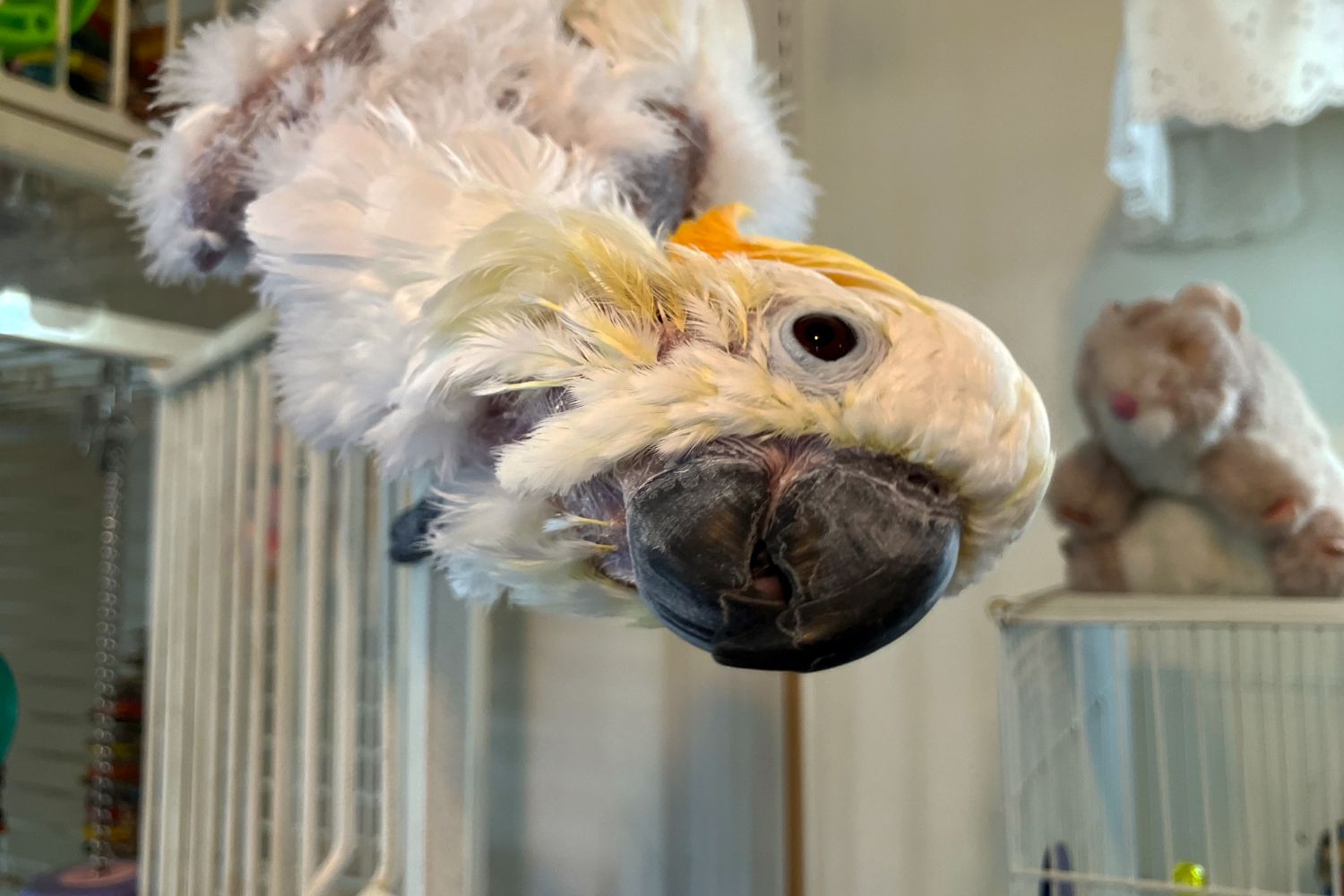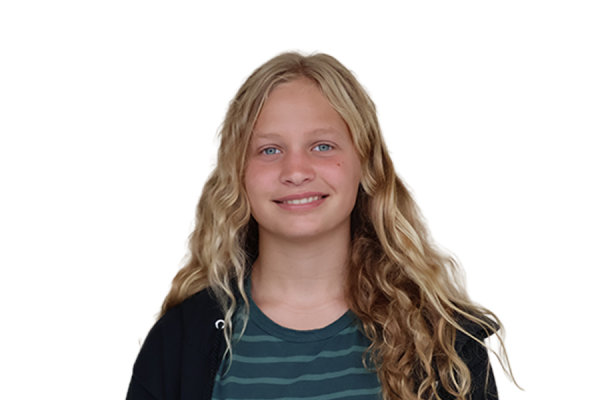Finding their flocks

Everyone knows that parrots can talk. It’s also widely believed that birds will sit on your shoulder, or that they’ll step up on your hand and chirp to you. You can feed them treats and teach them tricks, like speaking short phrases or learning to fly to you when called.
However, people looking to adopt a bird often don’t consider the noise.
They don’t realize that cages can smell.
They have no idea that some species are as intelligent as a human toddler, which means that their social and emotional needs are far more complex than many people are equipped to handle, according to the National Humane Education Society.
It could take years of working with a bird before it even gets to a place where it’s comfortable having your hand in its space, let alone sit on your shoulder, or learn to say “pretty bird.” Some go their whole lives without ever learning to trust human contact.
Every year, bird sanctuaries receive thousands of calls from people looking to give up a parrot they took on prematurely, or because a significant change took place in their lives that disrupted their ability to care for an animal. Sometimes birds are given up simply because their caretaker lost interest after they realized that adopting a bird is a major commitment.
Caring for a bird is greatly different from caring for cats or dogs, one of the foremost reasons being their longevity and the advanced planning required because of it. A bird may quite literally outlive its owner, according to Dix Animal Hospital, as some of the larger species can live for longer than 20 to 80 years. There has to be a plan in place for if something happens and the owner is no longer able to care for the bird.
Unfortunately, it is very common for people to adopt a bird without realizing what kind of commitment it is for the long term. Eventually, if the caretaker passes away and their family is not interested in taking on the responsibility, the bird will have nowhere to go and subsequently end up without a home.
Because of these issues, there are several organizations that specialize specifically in surrendered and unhoused birds, one of which is called Mickaboo. Mickaboo is a volunteer-run bird rescue that operates throughout the Bay Area. Having no central location, it is made entirely of experienced foster homes caring for thousands of companion birds.
A lot of experience is gained from working hands-on with these birds, many of which arrive at Mickaboo as surrenders. Mickaboo volunteer Vincent Hrovat described a simplified version of Maslow’s Pyramid that the rescue has adapted for its birds to visualize their goals.
“The bottom of the pyramid, the widest part, is basic: food, water, and shelter. We provide that for them. The next step up is companionship. We get them comfortable and eventually interacting with people. The next step is we get them comfortable with others of their own species, if possible, and working on things that will keep them occupied and happy,” Hrovat said. “So we try to take them all as far up that path as we can.”
One of Mickaboo’s goals is to ensure that all of their birds are adopted out to a home where they will be well cared for for a lifetime. There is a very strict application process that includes classes, phone screening, and a home visit.
A main concern is making sure that adopters are fully committed to the bird they are taking on.
“Adopters need to commit for the long term. The smaller ones can live 10 or 15 years. The bigger ones can live up to 80 or so years, and people need to make a commitment to keep them for their whole life and to have a place where it’s going to go safely after they pass away,” Hrovat said.
Hrovat emphasizes the importance of being prepared to adopt a bird — prepared to spend money, to dedicate space, and to commit for a lifetime.
“Be prepared for the long haul. Be prepared for a bird to live for dozens of years, and to be a part of your family for that time, and be prepared for personality changes as the bird gets older,” Hrovat said.
There are many factors that go into the decision to rehome a bird. Sometimes it’s a beloved pet parrot whose family has no choice but to give it up, and in other instances, a bird may face neglect or poor conditions before eventually finding its way to a rescue.
The cycle of relinquishment and re-adoption can cause adverse effects on a bird’s mental and emotional well-being, which could ultimately transfer over to its physical health.
“They definitely build bonds with people, and losing those bonds can be a huge problem for them. Of course, some of them have never had a chance to build human bonds. Coming to foster care can be a big step in the right direction, but they still need to learn to get along with people, and the stress of having to learn that is traumatic,” Hrovat said.
Birds, like people, form relationships with each other and with humans. This makes it difficult for them to move around so much, especially if they were close to a former owner.
Some of these traumas can lead to issues such as phobias or feather plucking, according to the UC Davis article “Feather-picking in Parrots.” Feather plucking is a destructive behavior in which parrots pull out or damage their own feathers, primarily due to medical or mental issues like boredom, depression, or habit.
“We have some that have been scared by a lot of things, and sometimes we have to figure out what it is that’s scaring them and what we can do about it,” Hrovat said.
According to Susie Hons, the manager of Wildwood Veterinary Hospital in Redwood City, one of the largest contributors to the issue of improper care is a lack of education.
“The public has been made aware of how to take care of dogs and cats from commercials on TV and all kinds of stuff, but bird care is not common knowledge,” Hons said. “The internet’s actually been a boon to that to help people get the right information.”
In her job at the veterinary clinic, Hons has seen birds brought in for all sorts of reasons, but most notably because the bird’s owners didn’t understand how to properly care for it.
“I would say about 80% of what comes through our doors is there because of a lack of information,” Hons said.
Many people have had the experience of ordering something from Amazon and receiving a product that isn’t at all what they expected.
It is not uncommon for someone to find themself in a similar situation when choosing to buy an animal – but for parrots, it isn’t as simple as repackaging them and sending them back to the shelter or pet store they came from.
Birds, and pets in general, are often portrayed in a certain way in the media. People want to share accomplishments and happy moments with their pets — not so much the cleaning, feeding, and expenses that come with it.
“A lot of people buy birds on impulse because they tend to be cheaper to buy on the spot compared to a dog or a cat,” said Athena Vernon, the president of Carlmont’s Ornithology Club. “And I think a lot of people believe that you just get the bird, you get a cage, and you’ll have the pet. But for a dog, you need to prepare your house. And for a cat, you need to make sure there’s a good living space. But that’s also true for pet birds, and a lot of people aren’t aware that birds actually need the most space.”
Situations like not having enough space or the right diet and enrichment all harm the bird’s health.
“If there’s any kind of stress, as in poor health, like not having a cage that they can move around in or anything to interact with, things like parasites and bacteria that are pretty much a normal part of your makeup can overwhelm the bird,” Hons said. “Screaming, plucking, self-destructive behavior, all of that goes along with it.”
Securing the bird’s physical health isn’t enough. With birds, enrichment activities and the ability to be social are almost as important. Leaving a bird in a bare cage would be like locking a person alone in an empty room. They need activities and someone to spend time with.
“There’s a whole need for enrichment. Birds are really smart and like their flocks, and you’re kind of their flock. They want that connection, either with other birds or with people, toys, something that keeps them stimulated. That they’re just something you put in a cage and leave would be a misconception. That’s not true,” said Colleen Crowley, the communications manager at the Peninsula Humane Society and SPCA.
Because of the intelligence of these animals, the community needs to work towards equipping pet owners with the resources needed to better prepare them for the serious responsibilities that come with adopting a bird.
It begins with awareness. The easiest way to help is to be educated and encourage others to do the same. Spreading the message of the importance of education and preparation, especially when it comes to the care of other living beings, is the first step toward making a change.
“We don’t want to create unnecessary harm for another creature, so it’s really important to do that research, and it’s not something to do on a whim,” Crowley said.
Another way to help birds in need is by adopting from a shelter or rescue rather than buying from a pet store or breeder. This can give older birds a second chance at a forever home instead of encouraging the breeding of more birds who will then also need to find homes.
“What we really preach is don’t buy, don’t breed, adopt. There are thousands and thousands of animals of all kinds in rescue organizations,” Hons said.
While there are many unique challenges and responsibilities that come with parrot ownership, there are equally as many exciting experiences and skills that can come from sharing a home with these birds.
Parrots are known for their big, lively personalities, no matter their size — from the largest macaws to the tiniest budgies, every bird has its own individual abilities and charm.
Although it takes work and dedication, many people consider the bonds that they have built with their birds to be incredibly rewarding, and if maintained with care, they can last a lifetime.
“It’s a big commitment. Do research about the particular kind of bird you’re getting so that you know what it needs and what it likes so it can have a good life with you,” Crowley said.



